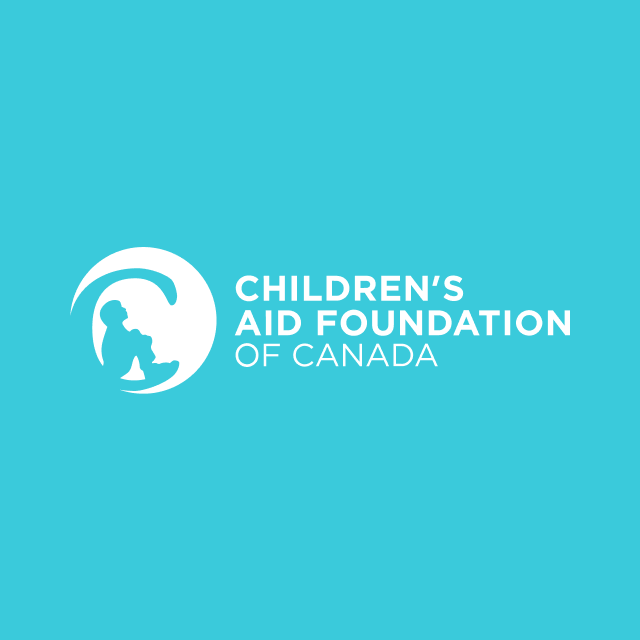Prior to COVID-19, an astounding 44% of women in Canada reported having experienced some form of psychological, physical or sexual violence at the hands of an intimate partner. In the wake of lockdowns and isolation, social service agencies across the country reported that call volumes related to abuse at home doubled. According to Statistics Canada, there was a 14% increase in rates of gender-related homicide of women and girls between 2020 and 2021, marking the highest rate recorded since 2017. In August 2023, the federal government labeled gender-based violence an “epidemic.” Rates for police-reported family violence (+3%) and intimate partner violence (+1%) increased in 2023.
Evidence shows that domestic violence has profound and long-lasting impacts on children – particularly children under four – and makes it more likely that they will be placed in government care. Through a project called Safe at Home, Children’s Aid Foundation of Canada aims to strengthen families experiencing intimate partner violence — and prevent violence from reoccurring so children can grow up in healthy, caring homes.
A collaborative approach to strengthening families
Research indicates that families experiencing domestic violence benefit the most from a collaborative front-line approach. With support from the Foundation, Safe at Home programs are co-delivered by local child welfare agencies and community-based organizations using an intentional, strategic approach to service delivery, national evaluation, knowledge sharing across the sector, and ultimately, scaling to communities across the country,
The project combines two leading programs — Mothers in Mind and Caring Dads — to maximize delivered respectively by Lead Partners, the Child Development Institute (CDI), a children’s mental health agency in Toronto that designed Mothers in Mind, and Changing Ways, an agency based in London, Ontario with a mission to disrupt violence and abuse that is working in partnership with Dr. Katreena Scott at the Centre for Research on Violence Against Women and Children to implement the Caring Dads program.

Mothers in Mind
Lisa Sura-Liddell, Clinical and Program Manager of Family Violence Services at CDI, says that early intervention is critical to healing a child’s relationship with the primary caregiver and Mothers in Mind was borne out of a critical gap in services for children under four who were living in homes impacted by domestic violence.
A 12-week group program that engages mothers and children under four, Mothers in Mind is a unique program that recognizes how the experience of violence may impact a mother’s ability to respond to her child’s needs.
Current partners:
- Children’s Aid Society of Toronto, ON
- Children’s Aid Society of Nipissing Parry Sound, North Bay, ON
- General Child & Family Services Authority, Winnipeg, MB
- Family & Children’s Services of Frontenac Lennox & Addington, Kingston, ON

Caring Dads
The Caring Dads program, engages fathers — the perpetrators of violence in the vast majority of domestic violence cases — in group sessions that build trust, help them understand the root causes and consequences of their behaviour, and promote child-centred parenting. The sessions also help fathers build skills in non-abusive interactions with their parenting partners.
Amiel Houghton, Caring Dads Project Coordinator at Changing Ways, says that including fathers in the process of finding solutions to domestic violence offers a systemic solution to preventing the violence from reoccurring.
Current partners:
- Children’s Aid Society of Toronto, ON
- Children’s Aid Society of Oxford County, ON
- Windsor Essex Children’s Aid Society, ON
- General Child & Family Services Authority, Winnipeg, MB
- Acorn Family Place, Winnipeg, MB
- Child & Family Services of Western Manitoba, Brandon, MB
Supporting Indigenous families
Given the unique needs of many families — particularly Indigenous families, who are disproportionately impacted by the child welfare system — Safe at Home also offers funding to Indigenous led agencies and organization adopting the program to create a more culturally appropriate model.
Amanda MacEwen, Manager of Family Supports at NCFS Toronto, says adaptations are crucial for ensuring program delivery approaches recognize the intergenerational trauma faced by many Indigenous families due to several factors: racism, historical and ongoing trauma, poverty, overrepresentation in child welfare. She’s optimistic about the potential of Safe at Home to build trust between Indigenous communities and the child welfare system and believes using a trauma-informed approach will help Indigenous families receive the support they need to thrive.
Current partners:
- Native Child & Family Services of Toronto, ON.
- Nogdawindamin Child & Family Services, ON
- Sagkeeng Child & Family Services, MB
- Ma Mawi Wi Chi Itata Centre, MB
Creating change
To date, Safe at Home program has signed partnership agreements with eight program delivery partners, including one Indigenous partner. A total of 20 groups have taken place, supporting 179 mothers and fathers.
Quotes from mothers on the impact of Mothers in Mind:
“I learned different ways to manage my children’s temperament and challenging feelings.”
“Being a better parent and enjoying small and meaningful moments with my kids.”
Quotes from fathers on the impact of Caring Dads:
“Caring Dads has shown me how to focus on my child’s needs first and how self care and being healthy in my relationship are very important as kids hear and see things more than we know.”
“I’ve learned how to practice analyzing my thoughts and exercising the positive ones to be used in situations with my kids, family and personal relationships.”



